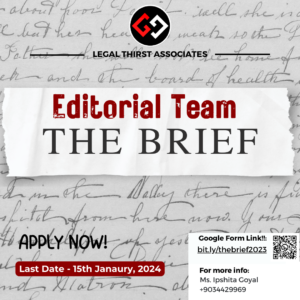Charter for Advisory Committee of Legal Thirst
- The Committee shall be called the ‘Advisory Committee’.
It is authorized by the Board of Directors and will serve at the pleasure of the governing body. -
Purpose, Scope of Work and Benefit
The Advisory Committee is created as a standing committee for the purpose of working with the Legal Thirst Governing Body. The committee shall limit its activities to advising on matters that directly concern the agency programs and fundraising efforts. The Committee shall have no legal responsibilities and is formed to give advice and recommendations to the board and management. It cannot compel the board or staff to act on its recommendations or feedback.
The Advisory Committee shall:
- be comprised of diverse skills and experiences
- provide board and management with objective opinions about the organization
- provide input, skills, and knowledge towards specific projects
- sign a conflict of interest disclosure and waiver statements
The specific scope of work of the Advisory Committee may include the following:
- identify fundraising, technical assistance, and marketing resources
- assess the impact of programs, projects, and events
- serve as ad hoc on short-term events such as the Annual Meeting
- serve as a non-political advocate for the organization
Benefit as an Advisory Member:
The Advisory member can be a tremendous influence and complement to the effectiveness of the Governing team, as it works to carry out specific and complex roles.
Other benefits include:
- Complement the skills of the governing body members.
- Give back: Opportunity to share professional expertise, insights, and experiences to develop emerging board leaders.
- Work with peers: Experience valuable networking opportunities.
- Engage in strategic dialogue and participate in robust discussions that will help shape the organization in the future and assist the organization in capitalizing and responding to trends.
- Sharpen leadership skills: Participate in committee work and sharpen leadership skills in a supportive environment with the goal to fill board positions that become available.
- Exclusions
Decision Making
Advisory members shall have no power to make decisions about the organization. They cannot outline rules for how the organization operates, give employees instructions, or give directives to the Governing body or management.
Spokesperson
Advisory members shall not speak on behalf of the organization. This includes speaking to the press (unless not told to do so) or discussing confidential business matters with employees, clients or vendors.
- Membership
Composition: The advisory committee shall consist of at least ten members. Members will be selected and appointed by the Board. Committee members will constitute a cross-section of the public and private sectors having excellence in professional insights.
- Organizational Structure
The Founder & CEO or their designee shall appoint a President of the Committee and serve as an ex-officio representative to Committee.
- Procedural Rules
Meetings: The committee will meet at least four times per year – in March, June, September, and December on the third Monday. Written notices of upcoming meetings will be emailed to members at least seven days before a meeting.
The meeting shall be held via any Online medium or offsite locations as decided.
Minutes: Minutes of each meeting will be kept. An electronic copy will be emailed to the board and management within two weeks after a meeting.
Recommendations and Reports: Committee recommendations and reports will be submitted in writing to the board. Documents will include both suggested action and justification for suggestions. The board will respond/react to such recommendations/reports in writing.
Dismissal: Members who are absent without reasonable cause from three successive meetings will be considered to have resigned their seats. The board will move to fill the position.






